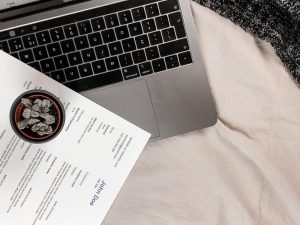How to Prepare For an Interview
Your interview is coming. And now comes the most difficult part, which is getting ready for it. You may be terrified, as the unknown is upon you. The head gets full of swarming thoughts: possible questions that will be asked, the most fitting attire, things to bring with you. It’s totally OK; everybody feels like that. Nonetheless, you have to prepare yourself to impress the employer. Follow these steps, and your meeting with an HR specialist will go as smoothly as possible.

Gather Data about the Employer
Your preparation should begin with an investigation and analysis of the company. Yes, you got the basic information from applying for the position, but now it’s time to spend some effort on googling more specific data. First, focus on the company’s activity. What is the scope of their operation? Is there any information about them in the mass media? Are there any particular projects that are of high importance to them? What is the corporate policy? What values do they expect their employees to have? To find all this information, you have to check different news media and the company’s account on Facebook, Instagram, or any other social networking sites. Having this data at your command will be a huge advantage, as your interviewer will definitely appreciate your commitment.
No CV – No Interview

Make sure to bring a copy of your CV to your interview. Imagine your interviewer lost their copy of the document. Having a spare one will save the day.
Also, consider rechecking your CV. Maybe you can add something or change the layout. There are many pre-made CVs sized as a4 document template on the Internet so use the one you like.
Make a List of the Most Frequent Questions and Come Up with Answers
Even if it’s not your first rodeo, you can’t be sure that everything will go as you think. Find a list of the most frequent questions. Skim through them and point out those you may encounter. Start from the basic ones (your age, origin, etc.) and move to more specialized ones (your experience, previous place of work). Prepare your answers to avoid unwanted pauses and stress during the interview.
Emphasize Your Strengths
It’s good to know your best sides, so don’t be afraid to name them. Good qualities are a perfect way of describing yourself. Think of some of your strong points and a situation when you managed to show or use them. With a particular background given, your traits will become a great asset rather than just random words.
Consider another vital aspect: why you are the person who should be hired for this position. It’s crucial to show the interviewer that you’re excited to get this job, so dwell upon your primary interest in the company, what benefits you are expecting to receive, and what makes you better than the rest of the candidates.
Practice Mock Interviews
Presenting information in front of the public requires repetition and rehearsals. The same can be applied to interviews. Practicing the whole thing is the best remedy for soothing your nerves and boosting self-confidence.
Your closest people may help you by playing the role of an interviewer. Tell them to use the list of questions, but also let them ask their own questions unexpectedly so that you can see how quickly you can adapt. Practice will enable you to check if the answers really fit the questions, as there can be some points left unclear. Repeating the information a dozen times will imprint it on you, making the interview pass more naturally and calmly.
Plan Your Look
Your outfit will be the first thing an interviewer will see. So, you need to think out this one very thoroughly to create the right impression. Remember that different companies require a different approach. There are three most common interview attire: formal, smart casual, and casual. However, before explaining the differences between them, let’s outline the basic rules that apply to all kinds of clothes:
- Your attire should always be clean and neat.
- Nothing extraordinary or bold is accepted.
- Make sure you don’t wear anything which may bring discomfort.
The formal style is the strictest one: black (dark) suit/skirt, white shirt, simple jewelry, and black shoes. Smart casual gives you more freedom. It combines the austerity of formal style with some casual elements like pullovers or cardigans. You can add a specific color accent to them, but be careful not to make it too audacious. Still, it’s better to stick to more neutral colors: use black, navy, or gray for your pants/skirt; white or another delicate shade for your shirt/top. The casual style is the simplest one: you can wear a t-shirt, your regular jeans, and a pair of old shoes. Just make sure they are in a good condition.
Conclusion
Definitely, this prep list can be expanded. Yet, we hope that you will use our tips to pass the interview breezily and get your dream job. Break a leg!

